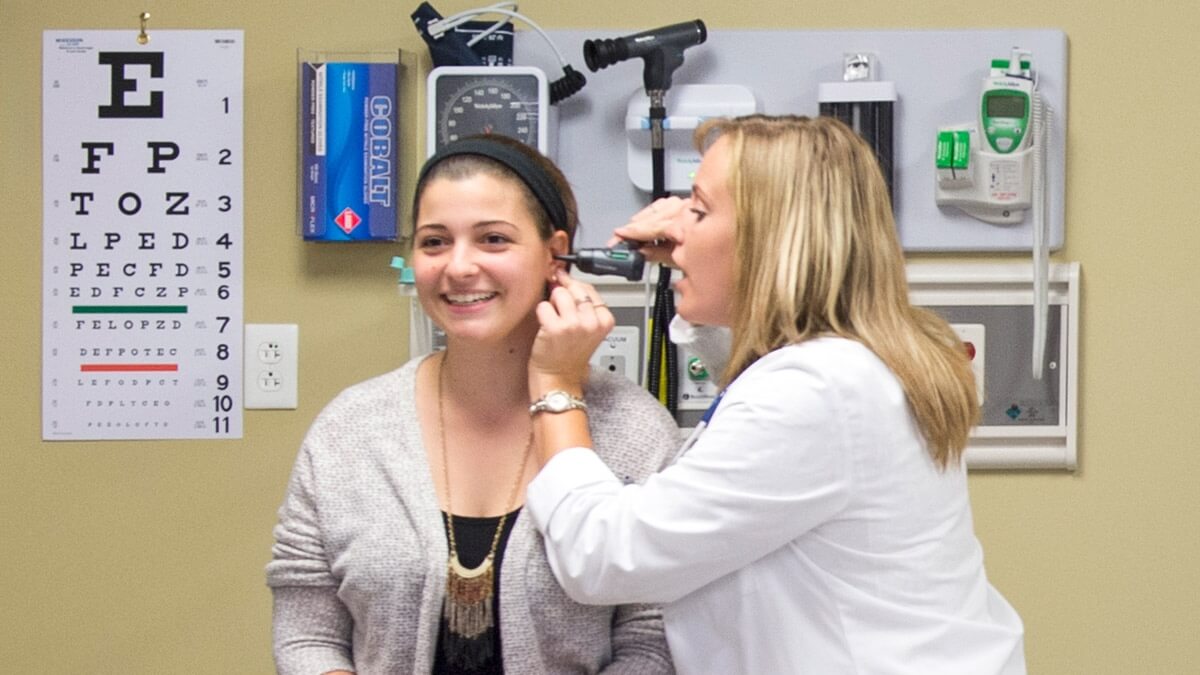Clinical Internships and Rotations
At the heart of your health care education are the hands-on experiences in direct patient care that enable you to take your classroom learning and turn it into practical practice.
Clinical rotations and internships provide you with hands-on experience in real-world patient care settings. You’ll apply your theoretical knowledge, develop critical thinking skills, refine communication techniques, and build empathy by directly interacting with patients.
What Are Clinical Rotations and Internships?
Clinical rotations and internships are a pivotal educational phase for students in RIT’s physician assistant BS/MS and diagnostic medical sonography (ultrasound) BS programs. They mark the beginning of the real-world clinical practice portion of their studies.
During clinical internships and rotations, students work under the mentorship of medical professionals to help care for real patients. Clinical internships and rotations can be completed at hospitals, ambulatory clinics, outpatient centers, and other medical-related facilities.
Physician Assistant BS/MS
Mandatory rotations are in the fields of internal medicine, family medicine, orthopedics, emergency medicine, women's health, pediatrics, general surgery, and behavioral health. Students select two elective rotations.
Diagnostic Medical Sonography (Ultrasound) BS
The one-year clinical internship provides hands-on experience at two or more approved medical facilities. After completing the pre-internship course work, all students begin the internship by attending an intensive two-week experience on campus.
Why Are Clinical Rotations Important?
While classroom learning provides a strong academic foundation, lectures and classroom activities alone cannot prepare you for real-world practice. During your clinical rotations and internships, you will engage with patients who may have a range of medical symptoms and conditions. Clinical rotations refine your diagnostic skills and enhance your ability to provide appropriate care in a variety of clinical settings. These experiences are essential to develop your expertise as a health care provider.
Key Benefits of Clinical Rotations and Internships
When you complete your clinical experience, you’ll gain a variety of skills and capabilities needed to care for and treat patients:







